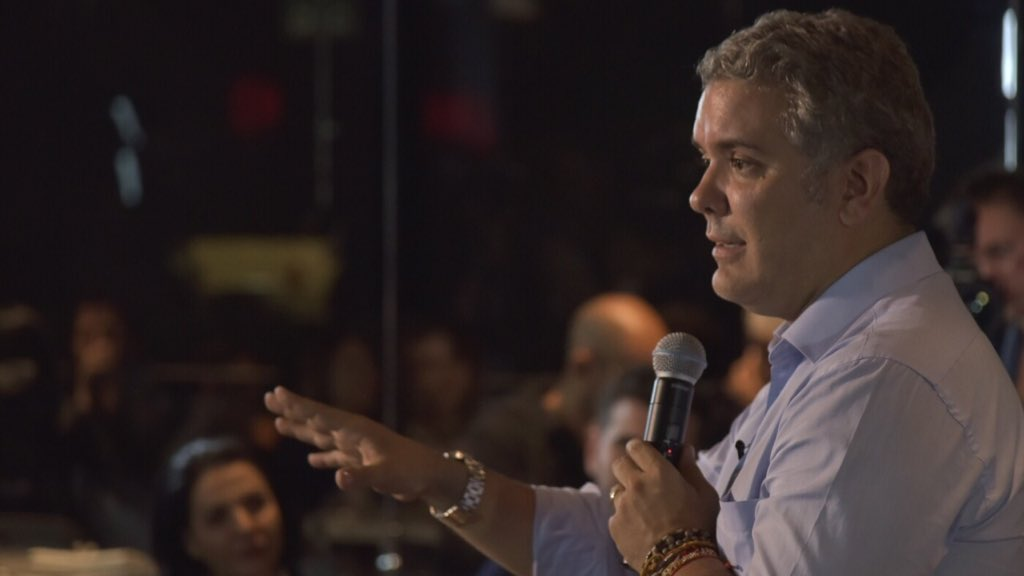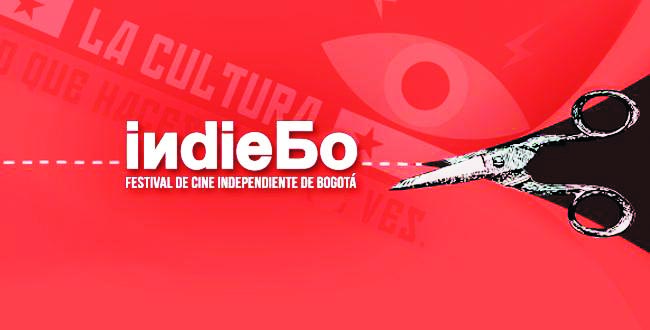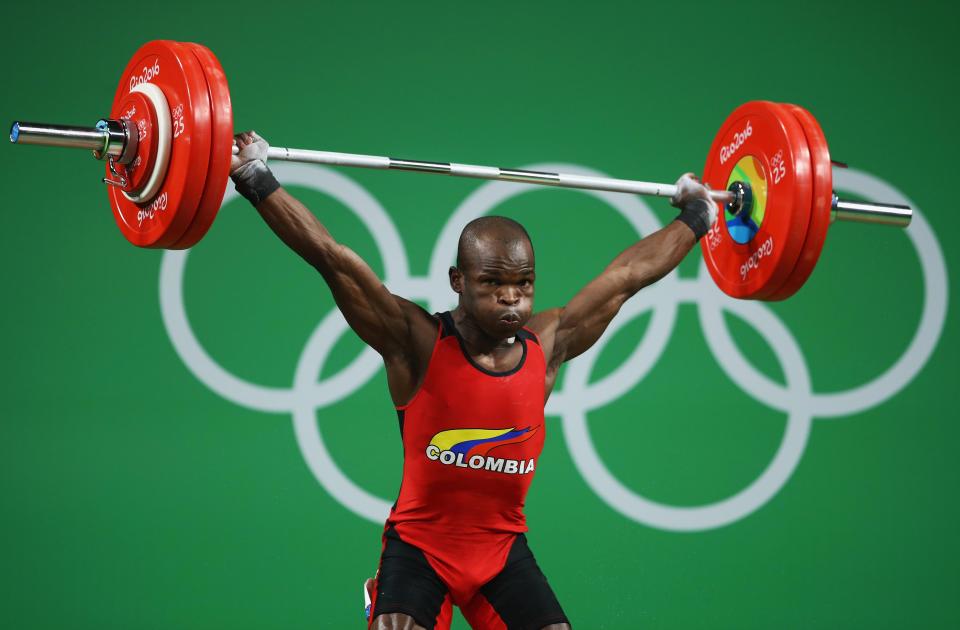Who’s this then?
Every person coming to Bogotá has an opportunity to start a new life, to build a new plan, to dream with a better future.
Carlos Fernando Galán
Carlos Fernando Galán is the younger brother in a political powerhouse family. He represents Nuevo Liberalismo, which are splitters from the larger Liberal party. The Bogotá elections 2023 are his second swing at the Casa Liévano, having been edged out last time around by Claudia López. He’s served on the consejo de Bogotá, in the Senate and in various other political roles as well as a host of media positions.
His father was assassinated in 1994 when running for the presidency in what was a landmark moment not only in his life but also in Colombian politics. He portrays himself as an honest man who wants politics done right: Galán in name and nature.
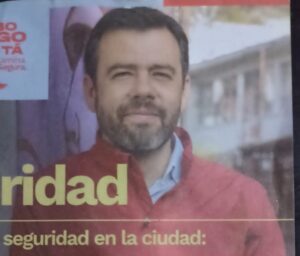
We contacted all the candidates we’re profiling with a questionnaire asking the same questions. Galán was the first to reply, and the only one to send back full answers, which are in the article, edited for length and clarity.
He says of his connection to the city “The possibility of enjoying with [my family] a cultural activity or a good meal is one of the things I love the most about Bogotá. Also, running through parks or cycling-routes and even hiking to Monserrate is an activity I really enjoy.”
He continues, “What I like the most about Bogotá is its diversity, we are a mix of cultures and this means variety, opportunities and inclusion. Every person coming to Bogotá has an opportunity to start a new life, to build a new plan, to dream with a better future.”
Is he polling well?
The best, Jerry, the best! He currently ranks at about a third of the share and has been top of the polls pretty much from day one. He seems nailed on to get to the run-off. He’ll be cautious though, knowing that he lost out last time round in a count that was almost too close to call. That lead to a second round being introduced for this run.
The second round looks comfortable too, but this is uncharted territory. Most polls have him enjoying a 30 point lead over Bolívar and 15 on Oviedo. If he can get 40% in the first round, he could win outright and avoid a second one altogether. His older brother has unhelpfully speculated about possible fraud.
What’s his manifesto like?
Read it online for full details. Note that the contents pages are not listed in the .pdf, so page numbers are +5 ahead of the contents page. It’s another beast, with 87 pages of lengthy paragraphs and few clear numbers. In one sense this is understandable – the capital’s books are a mess – but cynics will note there are few firm pledges.
His manifesto addresses many of the issues we’ve covered in recent weeks. “I’d highlight three that I consider as the most important ones: insecurity, hunger and mobility,” he said when asked about the main challenges. The first section charges straight into the heavy details – Bogotá Camina Seguro, as he calls it.
The first of those is high on most Bogotanos’ list of complaints, with 85% of the city worried about crime. Galán says “We need to face the entire crime chain, which means that it is not enough to prevent and capture the burglar but to identify and attack the entire structure behind the crime.”
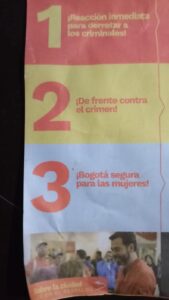
He sees tech as the way forward here, saying, “We will implement intelligent surveillance to provide security alerts and promote immediate attention.” That means facial recognition cameras and data analytics. With speed cameras attracting intense controversy, this may be unpopular.
He wants better links between citizens and authorities: “We’ll encourage people to report crimes with the local government acting as first respondent.” His manifesto also highlights permanent presence of authorities on the street to combat disorder in Bogotá. A good idea, but it’s not clear how feasible this is or how much it will cost.
On transport, also considered key by most rolos, he confirms that, “We will move forward with major projects such as Metro, the strategic design of the way TransMilenio works and go even beyond an inter-regional transport model. We will improve the customer experience by redefining routes and increasing frequency.” He doesn’t like the current design of the corredor verde, but will do something on that route.
He also sees traffic flow as important, saying, “We need to focus on the day-by-day traffic, with better management and by using innovative technology.” Bad parking will be managed by “an ‘order and respect revolution’ by promoting main road management with immediate reaction technology.”
Combining both transport and crime, he wants to create an elite security unit to focus on public transport, which is something that Bogotá is absolutely crying out for. This will also have a remit to crack down on gender-based crime on the system.
Education will mainly be targeted at reducing gaps between students in crucial areas such as reading and mathematics. There will be more IT and STEM teaching to prepare kids for the new world of work. Struggling schools will see more resources going their way, decided by analytics. For higher education, he told us he plans to continue the ‘Jóvenes a la U’ program that Claudia López brought in.
On human rights, he has pledged to continue Claudia’s care units for women, saying “It will be a priority for our government to continue and strengthen this brilliant initiative.” He says that acoso will be treated firmly and inflexibly, and that every gender-based crime will be processed in a detailed and personalised way. He even promises better access to menstrual products for disadvantaged women.
More cultural opportunities for young people is on his agenda – that’s youth centres, training programs and opportunities for employment. Also a focus on child labour, gang recruitment and underage pregnancy in an attempt to prevent problems before they start.
Better access and urban design is highlighted for people with mobility issues, as well as more respect and inclusion for traditionally marginalised communities – whether disabled, LGBTQI+, elderly or indigenous. Mental health will be integrated into the general health system.
There are a lot of great ideas in those 82(!) pages, and a lot more that we don’t have space for. Many of them are things that would increase quality of life immensely in Bogotá. However, there are so few precise details that it’s impossible not to wonder how they will all be paid for and/or if they can all be implemented.
As the leader in the polls, this makes a lot of sense. Unlike Molano and his megajail fantasies, Galán can’t afford to make nonsensical claims. What he has written down in his manifesto can and will be used as evidence against him in the future, so the details have been glossed a little – although he does promise open accounting.
What’s he been saying on the campaign trail?
He’s been at all the debates, but studiously avoided saying too much concrete. A sensible move, at least for the first round, where there’s no need to take risks or make commitments when there’s little chance of failing to get past the first hurdle. He has managed to focus on crime without playing the strongman, which has impressed many.
Although he sometimes seeks to play it down, he absolutely is the most politics-as-normal candidate. That’s not quite the same as continuismo, but it’s not far off. With his extensive palanca and experience all over politics and the media, he’s no outsider calling for a revolution. Some see this as positive, others less so. It’s your call which way you want to go.
Some have criticised this middle-of-the-road attitude as being too centrist and tibio, but it also means no one is against him. With three rightist candidates tripping over each other to make appalling mano dura comments and Bolívar dominating the left, there’s no votes to be won on the flanks. That will all change in the second round, though.
Any skeletons in the closet?
None that we could find. There are of course criticisms of the man, but they are all related to either hearsay, personal dislike or political disagreement. It cannot be overstated quite how unusual this is in a Colombian politician, especially one who’s lived his whole life in politics.
The only small thing people might highlight is his ex-membership of the Cambio Radical party, who he binned off in 2018 after they declared support for the doomed Iván Duque. However, jumping between parties is fairly common within Colombian politics, and he did it for ethical reasons.
Can he work with the central government?
He is posturing against the current government a bit, but that is likely just campaigning. In power, he’s likely to be pragmatic in his decisions. He says himself that: “National government must be respected by the city mayor, but in the same way, it is a priority to represent the mandate given to the mayor by the people of Bogotá. This relationship will be respectful, we have to work with the national government and we will do it.”
On the key issue, he makes it clear that “We need to defend projects such as the Metro, where there is no room for modifications and where the signed contract must be respected, there is no time for delays or budget increases.” That may raise hackles in the Palacio de Nariño, but it’s a perfectly reasonable position.
Can he win?
Absolutely. He’s the red-hot favourite and has led in almost every poll since the start of campaigning earlier this year. He was close to winning last time and he’s run a solid if unspectacular campaign with plenty of room to move up a gear if necessary.
Accusations of being a secret rightist are nonsense if you look at his manifesto, and it will be no surprise to see him focus more on the social inclusion aspects in the second round, especially if he’s up against Bolívar. The only thing in his way is an unexpected event, and in Colombia, that’s always a possibility.


